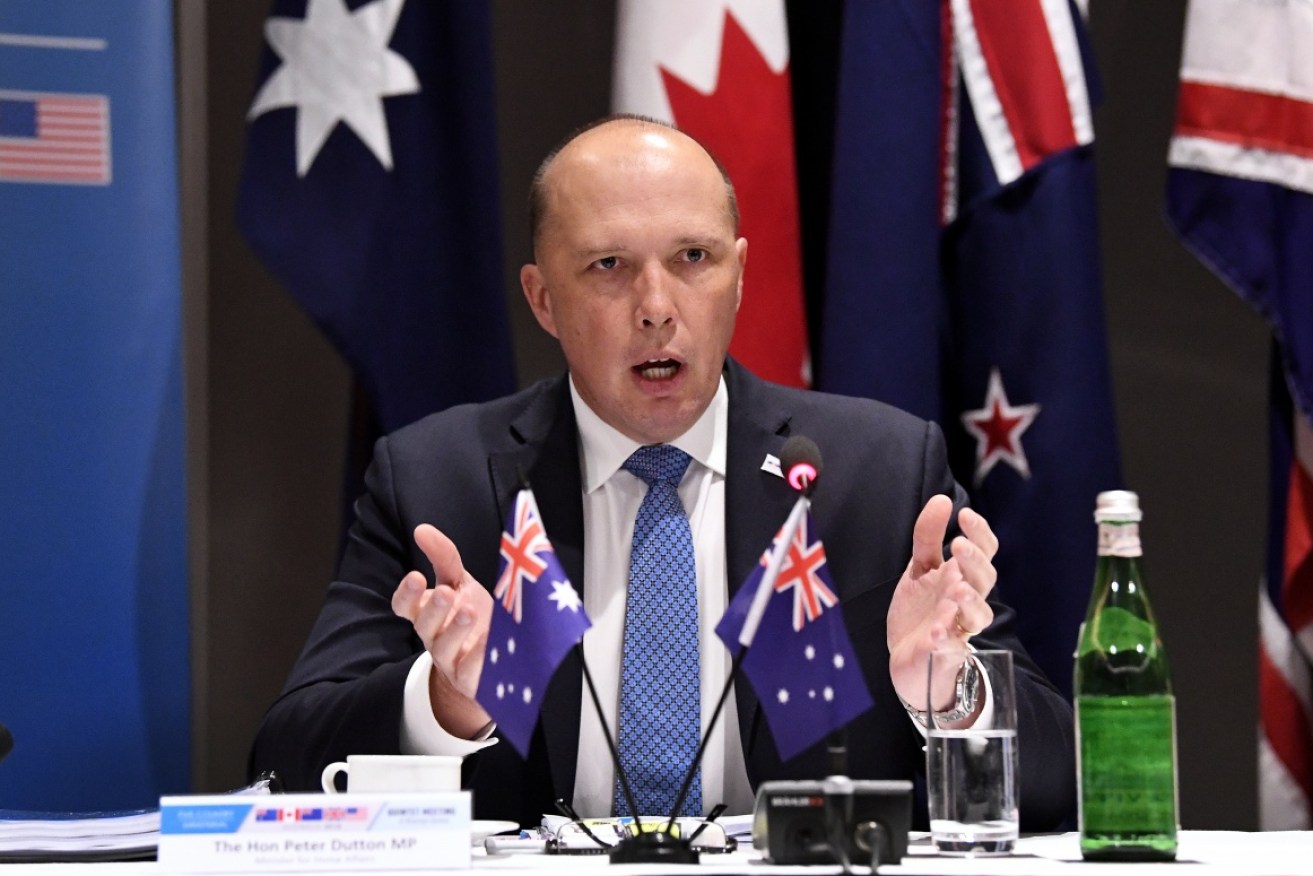Experts denounce Peter Dutton for ‘destroying’ progress on mental health by questioning accuser’s sanity

Peter Dutton has suggested that the design of nuclear submarines could be announced before the election. Photo: AAP
Lowering the tone of public discourse, seeking to delegitimise another person by way of stigma, damaging years of work to improve public attitudes, and breaching his duty of care.
These are some of the criticisms made against Home Affairs Minister Peter Dutton by leading mental health professionals and social scientists.
The New Daily invited the experts to assess Mr Dutton’s behaviour in publicly questioning the mental health of Roman Quaedvlieg, the former Australian Border Force commissioner.
This week, Mr Quaedvlieg appeared to contradict Mr Dutton’s claims that he had no personal connection to an Italian au pair who he ordered released from detention. The women had been detained on suspicion that they intended to work in Australia after arriving with tourist visas.
In a written statement, Mr Quaedvlieg said he took a call in mid-June, 2015, from Mr Dutton’s chief of staff, Craig Maclachlan, who told him “that the minister’s friend, whom he referred to as ‘the boss’s mate in Brisbane’, had encountered a problem with his prospective au pair who had been detained at Brisbane Airport by immigration officials due to an anomaly with her visa”.
Mr Dutton branded the evidence a “fabrication” and “impossible’” because Mr Maclachlan hadn’t worked for Mr Dutton’s office at that time. Mr Quaedvlieg – who was sacked as commissioner in March for helping get his girlfriend a job on the force – is standing by his evidence.
But Mr Dutton went too far – perhaps even breaching duty of care as Mr Quaedvlieg’s former boss – by telling the media that had asked the current Border Force Commissioner Michael Outram to offer Mr Quaedvlieg “any support to address his personal or mental health issues”.
Psychiatrist Steve Kifely, a member of the federal council of the Australian Medical Association, told The New Daily that suggesting someone has a mental health disorder to discredit a comment or viewpoint made by that particular individual “destroys all the good work” that’s been done to reduce stigma associated with mental health problems.
Dr Kifely said it can be very distressing for an individual to receive such remarks. “Not even a psychiatrist should make a comment on the mental health status of someone they’ve never examined,” he said.
“Its almost at the level of name calling … To make comments about someone’s mental attributes doesn’t really help in terms of resolving a conflict.”
Psychologist and former Lifeline manager Lyn Bender said Mr Dutton’s attempt to discredit the validity of Mr Quaedvlieg’s claims by implying he suffers from a mental health illness was a “very defensive action”.
“Dutton is under siege at the moment, so when you’re under siege you’re likely to attack the person you feel is causing you a problem,” Ms Bender said.
She noted that a person can go through a period of poor mental health – being sad about a loss or death, depressed about a change – but that doesn’t necessarily mean their capacity to assess a situation or evaluate an experience is hindered, she said.
“That’d be the same as saying to a rape victim, well you’re terribly upset about the rape so we don’t have to listen to what you’re saying.”
She added that a person cannot rightfully make a blanket statement that someone is not to be believed, unless they’re in an actual psychotic state.
“Only then would someone be justified for questioning what’s being said,” she said.
Dr Christopher Mayes is a research fellow in the Alfred Deakin Institute at Deakin University and research affiliate in Sydney Health Ethics at the University of Sydney. He is an interdisciplinary scholar with backgrounds in sociology and philosophy.
Dr Mayes said that politicians and public officials help set the tone of civil discourse.
“They aren’t the only influence but the way they speak and describe people, things or events creates a context in which those people, things or events can be thought about and talked about.”
He said one of the disturbing consequences of Peter Dutton and Donald Trump calling someone’s mental health into question – Trump seems to call opponents and critics crazy on an almost daily basis – is that it all “serves to shape and model the way the public should think and speak”.
Dr Mayes also referenced the work of influential American sociologist Erving Goffman, who developed a theory of social stigma in which someone, in this case Peter Dutton, is drawing attention to a particular trait (mental health) in order “to show that this person is weak or can’t be trusted”.
“And in that sense the person is reduced to the stigma rather than being seen as a whole person. Goffman talked about this being done to spoil the person’s identity.”








